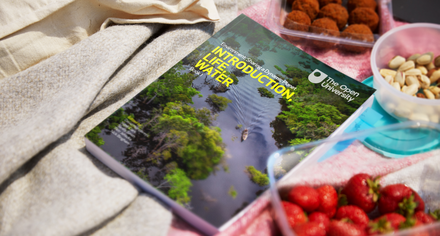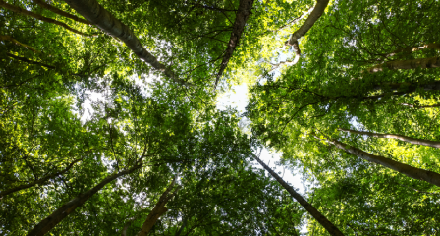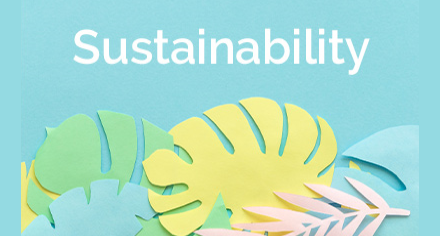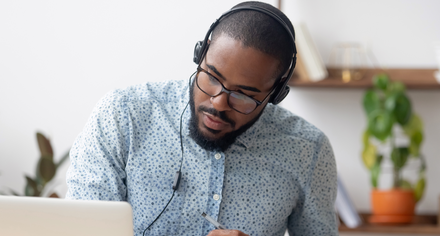
The Open University Business School
Sustainability at The Open University Business School
The Open University Business School recognises that sustainability is of the highest importance.
Our world has become increasingly connected, so it's vital that we recognise the impact we have on our local and global environment. As academics, researchers, professional staff, students and alumni, we can all play a part in ensuring sustainability is built into all of our activity, rather than just being a tick box optional exercise.
From writing sustainability into our curriculum, to encouraging good practices in the workplace and at home, and by undertaking meaningful research with practical outcomes, we want to ensure that our actions reflect our commitment to meeting the United Nations' Sustainable Development Goals.
Courses
Find out more about our range of courses to study in sustainability.
Sustainability across OU
Find out more about our wider committment towards sustainability.
OpenLearn - Sustainability
Choose and learn from a range of free courses in sustainability on OpenLearn.
News and events
Read the latest News and developments in sustainability.
Research
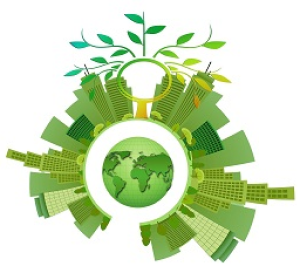
Current research activity
- Social and Responsible Marketing this cluster draws on the Department of Strategy and Marketing’s scholarly expertise in social marketing, marketing ethics, marketing creativity, corporate social responsibility, social enterprise and voluntary sector marketing and sustainable and ethical consumption.
- Centre for Social and Sustainable Enterprise addresses the connections between entrepreneurial activity, innovation and the transition towards more environmentally and socially sustainable ways of doing business.
Current research projects
- The Influence of Gender on Environmental Entrepreneurship, PhD research by Gizem Kutlu
- Sustainable smart cities through the New Public Governance, PhD research by Fulvio Scognamiglio
- Social Marketing for Combating Climate Change, PhD research by Zaineb Bouharda
- Social marketing in combating climate change, PhD research by Kora Korzec
Completed research projects
- ESRC Seminar Series - Green Innovation: Making it Work (2015-16)
- Growing Greener: Creating a New Values-based Environmental Engagement Toolkit for SME Intermediaries (2017-19)
- Sustainable clothing: towards sustainable clothing consumption
Previous Studentship opportunities
- PuLSE01 Sustainability and consumption in critical times
- DPO04 Performance Measurement System for a Sustainable and Resilient Supply Chain
Recognised endorsements
Principles for Responsible Management Education
.png) OUBS has been a Communicating Signatory to the Principles for Responsible Management Education (PRME) since 2011. This is a United Nations-supported initiative founded in 2007 as a platform to raise the profile of sustainability in schools around the world, and to equip today's business students with the understanding and ability to deliver change tomorrow.
OUBS has been a Communicating Signatory to the Principles for Responsible Management Education (PRME) since 2011. This is a United Nations-supported initiative founded in 2007 as a platform to raise the profile of sustainability in schools around the world, and to equip today's business students with the understanding and ability to deliver change tomorrow.
Athena SWAN
 We are the first school outside of the OU’s STEM faculty to achieve an Athena SWAN Bronze ‘departmental’ award (in November 2021). This followed our submission to Advance HE, the British professional membership scheme which promotes excellence in higher education. This internationally recognised gender equality charter acts as a catalyst for change and cultural transformation for staff and students.
We are the first school outside of the OU’s STEM faculty to achieve an Athena SWAN Bronze ‘departmental’ award (in November 2021). This followed our submission to Advance HE, the British professional membership scheme which promotes excellence in higher education. This internationally recognised gender equality charter acts as a catalyst for change and cultural transformation for staff and students.
It was initially established to encourage and recognise commitment to advancing the academic careers of women within STEM subjects but is now across all disciplines, professional and support staff and not just barriers that affect women, and also commits to considering the intersection of gender and other characteristics.

